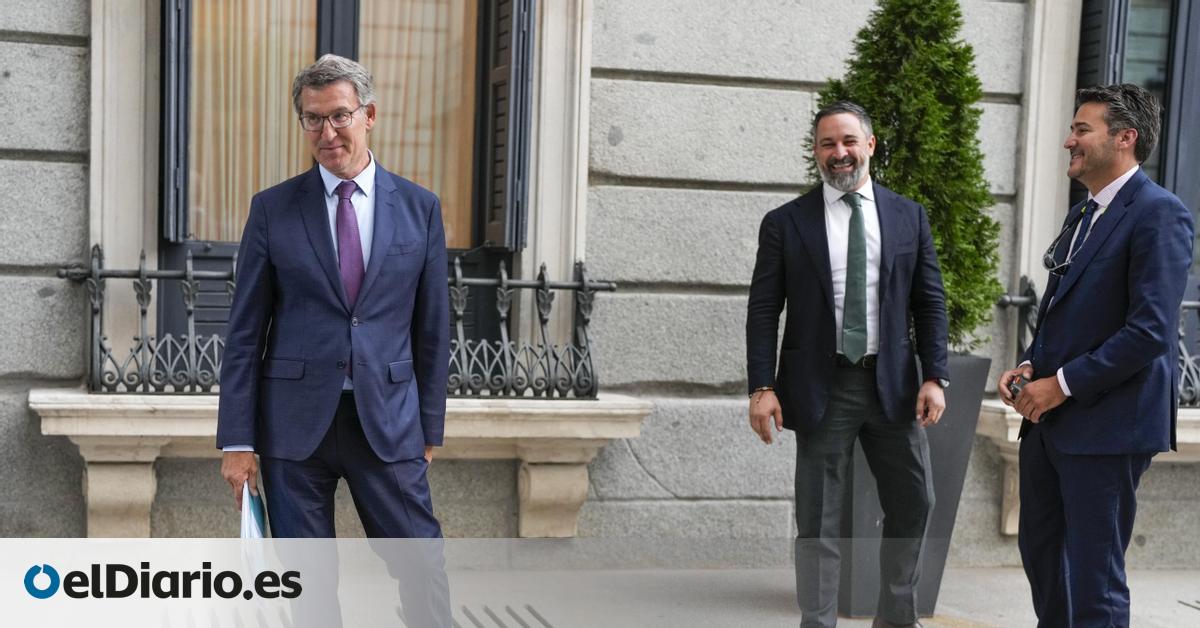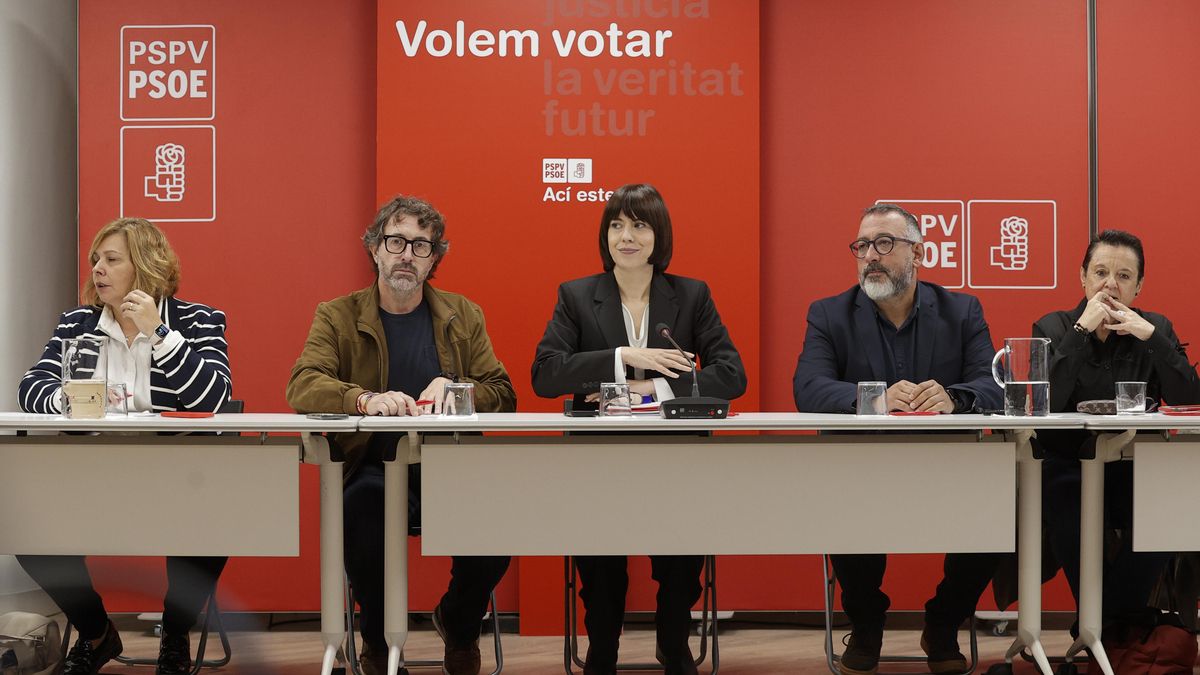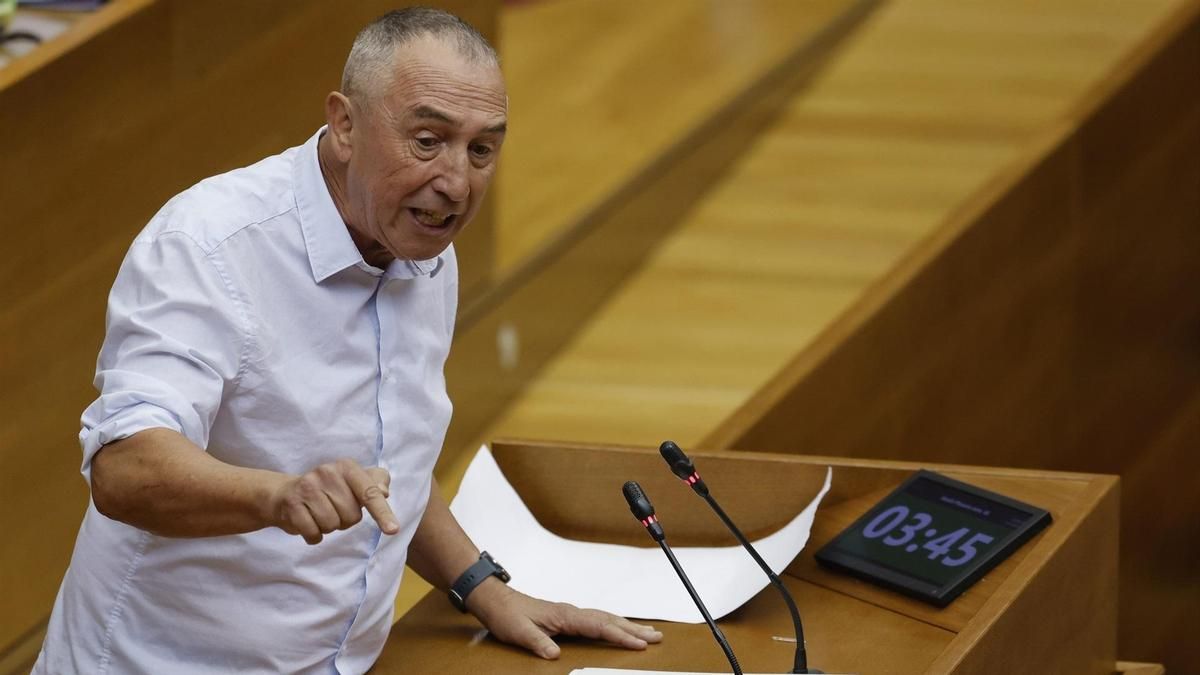
Pedro Sánchez and the rest of the progressive forces wanted an advance of the elections in the Valencian Community. Beyond the complaint that they had been making for months due to the disastrous management of the dana by Carlos Mazón, due to an electoral calculation: the PP is now accumulating wear and tear that can dissipate as time passes if it plays its cards well. The strategy of the PSPV-PSOE and its allies in the face of the false closure of Mazón’s departure is to attack Alberto Núñez Feijóo for his surrender to the extreme right and they have launched a war of attrition, although they distrust the true intentions that the PP and Vox hide behind the negotiation.
“The most worrying thing is that the PP, but especially the Valencians, are in the hands of a party like Vox, delighted to see its currencies grow while people of the level of Carlos Mazón are at the head of the Generalitat,” said the Government delegate, Pilar Bernabé, after the president’s resignation announcement. The general secretary of the PSPV in Valencia also said that a new agreement with the extreme right would be “terrifying.”
The idea has been repeated since then by all socialist ministers and public officials, convinced that the PP will surrender to whatever Vox demands of it, which has already outlined its agenda of involution: attacks on immigration, Valencians or setbacks in the green agenda. The threat to the fight against climate change was the main reason that Pedro Sánchez used to warn of this possible agreement, taking advantage of his presence at COP30, the international summit par excellence on that issue.
“If we have to fear something, it is the denialism of Abascal and Vox. And what we do not have to fear is the voice of the citizens of the Valencian Community,” he stated at the press conference: “As President of the Government, I express my concern that the negotiations that are taking place and being held between the Popular Party and Vox lead to a dismantling of the entire climate agenda, of the entire institutional and budgetary architecture to confront the climate emergency in one area, the Mediterranean, in particular Comunitat Valenciana, which has clearly been affected by the consequences of this climate emergency.”
“To us it seems terrible and an injustice that the future of the Valencian Community once again depends on Vox. For the progressive Valencian society there is almost a direct line between the ‘Napkin Pact’ [el acuerdo suscrito por Mazón y Vox] and the dana, because they frivolized with climate change. The Valencian Emergency Unit (UVE) was the joke of the PP, which went so far as to put in writing that what it would do was dismantle it,” say socialist sources in that direction.
A quick agreement or partisan strategies?
However, the revelation by elDiario.es of the first meeting of PP and Vox negotiators has caused confusion among those who assumed that there would be a quick agreement given the good harmony of these two formations in the Valencian Community due to the fact that Santiago Abascal has decided to send two emissaries from the national leadership to pilot these conversations.
The most optimistic socialist sources consider that the time that Feijóo keeps this negotiation open will also mean a wear and tear on his formation at a time, furthermore, in which the president of Extremadura, María Guardiola, is in the middle of the campaign precisely marking distances with the extreme right. On the retina is the agreement in 2023 that Mazón sealed with Vox and that dynamited Feijóo’s strategy for the general elections. Other sources do not rule out that the talks will blow up.
“As long as Mazón continues, the wear and tear for the PP is greater, but there are nuances. If the PP resists agreeing on crazy things with Vox, it will help them in Extremadura. So it depends on how the negotiation ends. If the PP refuses to accept those crazy things, they can blame Vox for having elections at a time when the community has to be focused on reconstruction,” government sources reflect.

“There is an opportunity,” says a Valencian leader, who does not give special importance to whether the elections are now, in a few months or in 2027, because he believes that the anger is not going to dissipate and that the progressive electorate will mobilize. However, there are more critical sources, who consider that Minister Diana Morant does not finish serving as an electoral poster. “With this management and 229 deaths, we should have a ten-point advantage,” says a socialist leader, who believes that until now the strategy had been erroneous by focusing exclusively the blame on Mazón given the possibility that he would end up being relieved. The socialists have recently changed the focus to criticizing the “mismanagement” of the PP in general, also taking advantage of the breast cancer screening crisis in Andalusia.
Compromís sees the electoral advance far away
On the Valencian left they have also firmly demanded electoral advancement in the Valencian Community. Not because of some polls that give them an upward trend in the heat of the mobilizations for Mazón but because they consider it “very painful” for the entire Valencian society that this entire succession process is not being discussed at the regional level but at the state level, as proven by the conversations that Alberto Núñez Feijóo and Santiago Abascal began yesterday. “We get the feeling that they don’t care about the Valencian Government and the PP only thinks about Feijóo,” sources from Compromís convey.
But at the same time and perhaps for the same reasons, they see a scenario of elections before 2027 as distant. The numbers managed by the PP are not good and those of Vox are, which leads them to think that the party there will do everything possible to avoid elections at this time. They also assure that relations between both parties at the regional level are good, much better than at the state level.

In any case, both Compromís, Esquerra Unida and Podem are preparing their organizations for a possible campaign that, although most see it as difficult, none of them completely rule out. The Valencian coalition has not yet decided who will be the candidate nor, of course, whether Joan Baldoví will repeat. In a recent interview in elDiario.es he assured that it is the bodies that must decide this point. “But we are prepared, stronger than ever,” he assured.
Talks about a left alliance
Beyond who is leading a possible candidacy, one of the pending conversations is whether Compromís will open to a broader alliance with Esquerra Unida and Podem. Although party sources recall that they have always gone alone at the regional level and practically 100% rule out a coalition as such, a ballot with the three names, they do believe that formulas can be sought so that the rest of the left-wing parties can feel represented in a broader candidacy. It is not an issue in any case, they say, that has been addressed in the executive meetings held so far.
Asked about this matter in the interview, Baldoví recalled that a few days ago at l’Aplec del Puig leaders from Podem and EUPV were present and he made a speech about the need to be “intelligent” and “generous” to reach an agreement. “Now more than ever we must be smart and generous to put the interests of the people and our country above our respective parties,” he said.
In this context, an event by Mónica Oltra with Esquerra Unida generated a lot of agitation a few weeks ago, in which the Minister of Youth and Children, Sira Rego, and Rosa Pérez, the general coordinator of Esquerra Unida, participated. The former vice president of the Generalitat, separated from active politics in recent years, comes from EUPV and is part of the Initiative branch within Compromís, more left-wing than nationalist, unlike Més, the sector that Baldoví represents, with a more Valencianist discourse.
In Initiative, many voices see Oltra as a possible electoral catalyst, if she decided to take a step forward, in future elections, although until now there had been speculation about a candidacy for the mayor of Valencia in the next municipal elections.
The alliance debate comes at a critical moment at the state level in the relations between the cosmos of Sumar and Podemos parties. The electoral advance in Extremadura has prompted those of Ione Belarra to appeal directly to Izquierda Unida to break with Yolanda Díaz in a movement that has not gone down well with the ranks of the organization led by Antonio Maíllo. Even so, in Extremadura the unitary candidacy in which Podemos, IU and Alianza Verde are present will be maintained.
Source: www.eldiario.es

